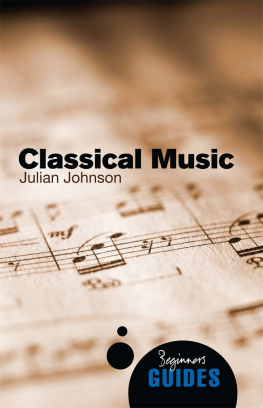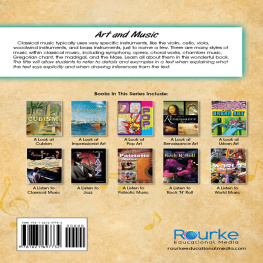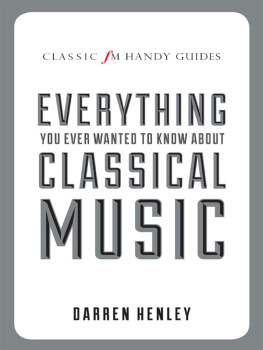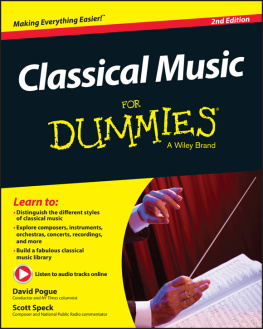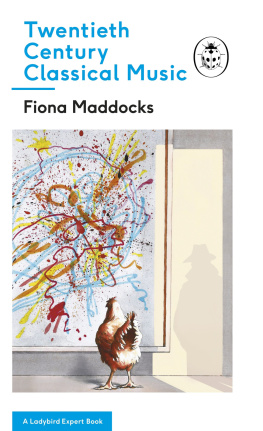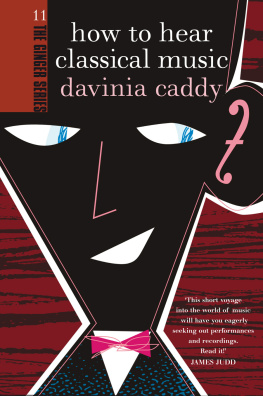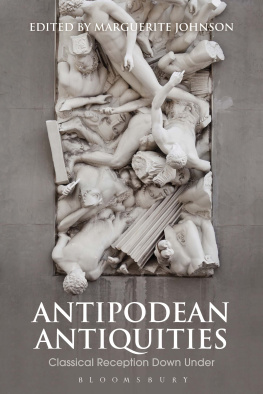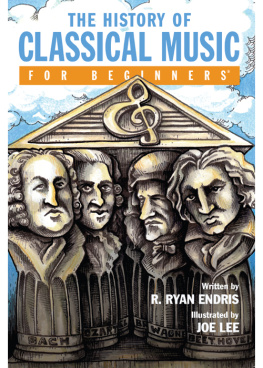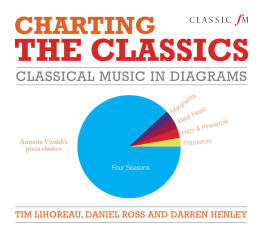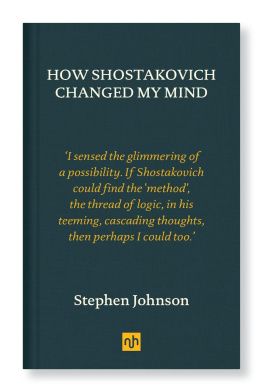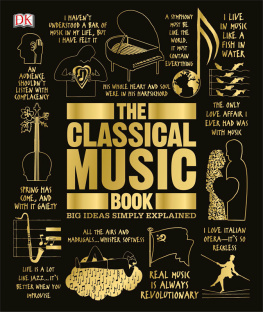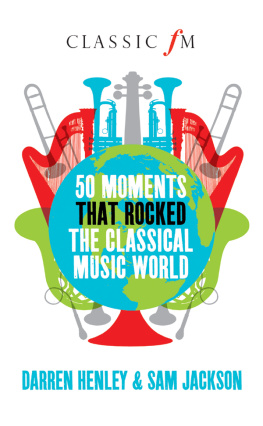Julian Johnson - Classical Music
Here you can read online Julian Johnson - Classical Music full text of the book (entire story) in english for free. Download pdf and epub, get meaning, cover and reviews about this ebook. publisher: Oneworld Publications, genre: Religion. Description of the work, (preface) as well as reviews are available. Best literature library LitArk.com created for fans of good reading and offers a wide selection of genres:
Romance novel
Science fiction
Adventure
Detective
Science
History
Home and family
Prose
Art
Politics
Computer
Non-fiction
Religion
Business
Children
Humor
Choose a favorite category and find really read worthwhile books. Enjoy immersion in the world of imagination, feel the emotions of the characters or learn something new for yourself, make an fascinating discovery.
- Book:Classical Music
- Author:
- Publisher:Oneworld Publications
- Genre:
- Rating:5 / 5
- Favourites:Add to favourites
- Your mark:
- 100
- 1
- 2
- 3
- 4
- 5
Classical Music: summary, description and annotation
We offer to read an annotation, description, summary or preface (depends on what the author of the book "Classical Music" wrote himself). If you haven't found the necessary information about the book — write in the comments, we will try to find it.
Classical Music — read online for free the complete book (whole text) full work
Below is the text of the book, divided by pages. System saving the place of the last page read, allows you to conveniently read the book "Classical Music" online for free, without having to search again every time where you left off. Put a bookmark, and you can go to the page where you finished reading at any time.
Font size:
Interval:
Bookmark:
ONEWORLD BEGINNERS GUIDES combine an original, inventive, and engaging approach with expert analysis on subjects ranging from art and history to religion and politics, and everything in between. Innovative and affordable, books in the series are perfect for anyone curious about the way the world works and the big ideas of our time.
aesthetics
africa
anarchism
aquinas
art
artificial intelligence
the bahai faith
the beat generation
biodiversity
bioterror & biowarfare
the brain
british politics
the buddha
cancer
censorship
christianity
civil liberties
classical music
climate change
cloning
cold war
conservation
crimes against humanity
criminal psychology
critical thinking
daoism
democracy
descartes
dyslexia
energy
engineering
the enlightenment
epistemology
evolution
evolutionary psychology
existentialism
fair trade
feminism
forensic science
french literature
french revolution
genetics
global terrorism
hinduism
history of science
humanism
huxley
islamic philosophy
journalism
judaism
lacan
life in the universe
literary theory
machiavelli
mafia & organized crime
magic
marx
medieval philosophy
middle east
NATO
nietzsche
the northern ireland conflict
oil
opera
the palestineisraeli conflict
paul
philosophy of mind
philosophy of religion
philosophy of science
planet earth
postmodernism
psychology
quantum physics
the quran
racism
renaissance art
shakespeare
the small arms trade
the torah
sufism
volcanoes


A Oneworld Paperback Original
Published by Oneworld Publications 2009
Copyright Julian Johnson 2009
This ebook edition published by Oneworld Publications 2012
The right of Julian Johnson to be identified as the Author of this work has been asserted by him in accordance with the Copyright, Designs and Patents Act 1988
All rights reserved
Copyright under Berne Convention
A CIP record for this title is available from the British Library
ebook ISBN 978 1 78074 141 3
Typeset by Jayvee, Trivandrum, India
Cover design by A. Meaden
Oneworld Publications
185 Banbury Road
Oxford OX2 7AR
England
www.oneworld-publications.com
Learn more about Oneworld. Join our mailing list to find out about our latest titles and special offers at:
www.oneworld-publications.com
For my students who taught me much.
What kind of book is this and who is it for? A Beginners Guide it may be, but it wont tell you where to begin. The fact that youve even picked up this book and started to read the Preface suggests that youre not a complete beginner at all, that youve already begun to listen to, be curious about, or are involved at some level in playing or singing classical music. In that sense, you and I are engaged in the same quest not just to know more about this massively diverse body of music, spanning some thousand years or more, but to try to understand it better. To that end, what Ive offered in this book are some frameworks within which classical music might be better understood.
This is not a history of music, though my chapters divide along broadly historical lines. It is not an introduction to key composers, musical works or techniques, though plenty of these appear along the way. There are literally scores of books that will give you an overview of all of this, with glossy pictures of musical instruments, composers and their contemporaries. Some come with CDs of music examples. All of these have their value and use, so why read this one?
This one is primarily concerned with what music has meant to people why it mattered so much at the time, and why it might still matter to us now. Rather than tell a story in which musical style just changes over the centuries, as if composers simply got bored with the old ways, I have tried instead to give a sense of how music has related to some of the big ideas of Western experience spirituality, human emotion, the invention of the new, the weight of history, the self-identity of individuals and nations. Huge claims have been made for the meaning of classical music, framed in terms of religion, philosophy, psychology or politics. At other times, its simply been taken as an innocent pleasure, a diversion or entertainment.
Talking about music is no substitute for listening to it. At the end of the book I have given a list of some key musical works that are either mentioned in the text or would illustrate the points I have tried to make. There are hundreds of other works that I might have suggested instead, so similar works by the same composers would do the job just as well if you find it difficult to get hold of the ones Ive suggested. I have also recommended some books for further reading but these are best followed up in tandem with listening to the music. I have often found, with music that is new to me, that listening to it provokes questions, which sets me thinking and then reading, which sends me back to listen to the music again. Its a never-ending process which, at best, continually enriches the experience of the music.
But there is no right way. Some of my most vivid musical encounters have been by accident and some of the music that haunts me now is music that a few years ago did nothing for me. There is little to be gained by trying to listen chronologically like the man who tried to read the whole of great literature starting methodically with authors beginning with A, you wont get far. If I have any recommendation it is simply to follow your nose, stop at the places that interest you, but dont be afraid of the unfamiliar. Life often seems too short to listen to music that isnt immediately engaging; on the other hand, its too short not to.
If you browse through the classical section of a major music outlet (on the high street or online) youre likely to find an eclectic collection of music not just famous composers of the concert hall and opera house from the past few hundred years, but a host of lesser known figures and musical styles. For a start, youll find an extensive range of music stretching way back through the Renaissance and medieval period to the simple unaccompanied religious chants of the ninth century or even earlier; next to Mozart, Tchaikovsky, Puccini and Debussy, youll find music by Monteverdi, Palestrina, Machaut and Protin. At the other end of the historical spectrum, the classical music section might include the music of film composers like John Barry or John Williams, songs drawn from pop and jazz idioms but performed by classical singers in orchestral arrangements, and a modernist avant-garde that sounds like it would be unlikely to appeal to the same people as Haydn or Schubert.
There is no simple definition of what constitutes classical music. The term refers to music drawn from over a thousand years of music history, from the medieval to the postmodern. It includes music written specifically for the concert hall but also music that was never intended for an audience. Though the best-known composers of the classical tradition were mostly working in Western Europe, today the story of classical music reaches across the globe. For many people, classical music is simply old music, yet many contemporary composers, writing in modern styles, see themselves as part of a continuing classical tradition. For some, classical music might be simply music for classically trained musicians sung by choirs or played by the kind of acoustic instruments you find in orchestras. But the closer one looks the more elusive becomes any kind of definition. Its not just music written by dead composers because its a living form; it doesnt have any particular set of rules or conventions because composers have continually altered these throughout history; its not just music that takes itself seriously and calls itself art because much of it was neither written nor performed in that way.
Font size:
Interval:
Bookmark:
Similar books «Classical Music»
Look at similar books to Classical Music. We have selected literature similar in name and meaning in the hope of providing readers with more options to find new, interesting, not yet read works.
Discussion, reviews of the book Classical Music and just readers' own opinions. Leave your comments, write what you think about the work, its meaning or the main characters. Specify what exactly you liked and what you didn't like, and why you think so.

